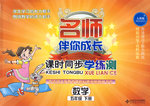题目内容
Mr. West wanted to buy his wife a Christmas present, but he was always very __36___, so he was never able to find time to go to the shops. At last, when it was the week ___37___ Christmas, and the shops were very crowded, he decided that he could not ___38___ any longer. He worked in an office, and ___39___ had lunch in a restaurant, but one day he bought some sandwiches, ate them ___40___ and went out to a big shop near his ___41___ during his lunch
The shop was full of women, who were also buying ___42___ during their lunch hour. Mr. West stood ___43___ at the edge of a crowd of ___44___ who were pushing forward to try to get to the people who were ___45__ necklaces and earrings. He tried to move forwards slowly, taking his turn with the others, but more and more women were ___46___ into the shop the whole time and pushing selfishly __47____ him. After half an hour, he was just as ___48___ from the people who were selling the necklaces as he had been when he came in, and his lunch hour was coming to ___49___, so he decided to change his ___50___ of doing things: he put his head down, gave a sudden loud shout and started to ___51___ his way towards the ___52___ of the crowd as hard as he could. The women around him became very __53____ when they saw what he was doing, and began to scold him.” Why can’t you behave like a ___54___?” they shouted.
“Ladies,” he answered them,” I have been behaving like a gentleman for the past half hour, and it has got me ___55___, so now I am starting to behave like a lady!”
36. A. busy B. lazy C. unwilling D. forgetful
37. A. behind B. around C. before D. after
38. A. work B. stay C. think D. wait
39. A. never B. seldom C. sometimes D. usually
40. A. slowly B. quickly C. quietly D. happily
41. A. car B. house C. office D. restaurant
42. A. clothes B. presents C. food D. sandwiches
43. A. politely B. quietly C. pleasantly D. freely
44. A. men B. women C. children D. strangers
45. A. examining B. choosing C. selling D. buying
46. A. going B. coming C. entering D. running
47. A. past B. behind C. over D. against
48. A. near B. far C. next D. opposite
49. A. an end B. a stop C. the top D. the limit
50. A. idea B. way C. measure D. plan
51. A. step B. go C. push D. pull
52. A. center B. edge C. back D. front
53. A. surprised B. angry C. afraid D. nervous
54. A. woman B. lady C. man D. gentleman
55. A. nowhere B. anywhere C. somewhere D. everywhere
ACDDB CBABC BABAB CDBDA

 名师伴你成长课时同步学练测系列答案
名师伴你成长课时同步学练测系列答案Memphis is the largest city in the southern State of Tennessee, USA. The Mississippi River flows along the west side of the city. Memphis is the chief center of business, industry and transportation in Tennessee.
650,000 people live in the city. More than one million people live in the area. Like many other American cities, Memphis has had racial problems. About forty-eight percent of the city’s population is African American. In 1968, city workers who collected waste went on strike. Most of the workers were black. The famous civil rights leader Martin Luther King Junior went to Memphis to support the workers. On April 4th, King was murdered in Memphis by James Earl Ray. After Mr. King’s death, the city worked to improve living conditions for black people. In 1991, voters elected W.E.Herenton the city’s first black mayor. The same ye ar, Memphis opened the National Civil Rights Museum. It was built next to the place where Martin Luther King was killed. Many people visit the museum to learn about the history of the American civil rights movement. Today, people from across the United States and around the world visit Memphis,where tourism has become a major industry.
ar, Memphis opened the National Civil Rights Museum. It was built next to the place where Martin Luther King was killed. Many people visit the museum to learn about the history of the American civil rights movement. Today, people from across the United States and around the world visit Memphis,where tourism has become a major industry.
【小题1】.
There are about African Americans living in Memphis.
| A.312,000 | B.480,000 | C.650,000 | D.1,000,000 |
Which of the following statement is NOT true according to the passage?
| A.Martin Luther King was killed in the city of Memphis by James Earl Ray in 1968. |
| B.W.E.Herenton was elected the first black mayor of Memphis in 1991. |
| C.Memphis opened the National Civil Rights Museum in 1991. |
| D.Martin Luther King was elected mayor of Memphis. |
The title for the passage should be .
| A.How to fight against slavery | B.National Civil Rights Museum |
| C.Memphis | D.A black mayor |